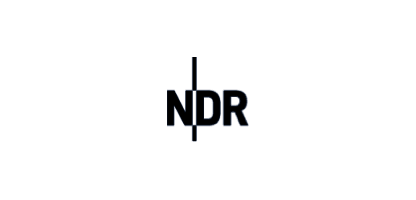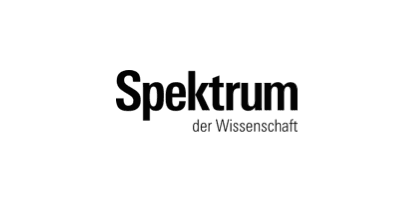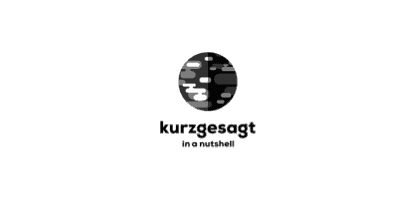About the Kiel Science Communication Network
What is our goal?
Together we want to develop new approaches for science communication by focusing on information visualizations and their perception. Some of the most challenging and complex issues for societies today involve threats to human health. Therefore, our initial topic is innovative health research.
The complexity of the biomedical phenomena and the underlying research process make it difficult to communicate the relevant scientific findings to the general public. Visualizations are breaking down this complexity. Doing so they can serve as a powerful tool to make science more appealing and accessible to a wide range of audiences with diverse backgrounds.
We see an urgent need to:
How do we deal with this?
Reacting to this needs KielSCN connects scientists, media and information designers, science communication researchers and practitioners. This collaboration allows us to work on a novel and holistic approach to visualization in science communication. Thus ensuring initial designs that are sound, innovative, effective and practical.
To get there we will integrate existing theories and methods from design research, science communication and education as well as emotion research. Thereby, our focus is on fundamental mechanisms of user experience and ways of applying them to the design of information visualizations.
Our designs will also be tested and improved with non-expert public and educational users in a form of participatory design very early on in the process. This allows us to give them an active voice and adaptively meet their needs and preferences right from the start.
Learn more about our mission
We want to
- combine multi-disciplinary research and design expertise, 00:40
- collaborate with excellent partners across science communication media, 03:15
- engage society in new discourses about health and well-being, 05:56
- build a sustainable and transdisciplinary center for science communication and training. 06:38
The KielSCN-Team
Academic Partners
Leibniz Institute for Science and Mathematics Education (IPN)
The Leibniz Institute of Science and Mathematics Education (IPN) is an internationally recognized research institute on science and mathematics education, funded by the Leibniz Association. It combines expertise in the research fields on science and mathematics education with educational psychological research and research on educational measurement.Muthesius University of Fine Arts and Design (MKH)
The Muthesius University of Fine Arts and Design (MKH) has been successfully engaged in the search for creative solutions and artistic interpretation in the field of knowledge representation.With the research focus on visual science communication the MKH is endeavoring to expand research in this area. The Science Communication Lab (scicom-lab.com) is a spin-off of the Muthesius University. It specializes in visual science communicationand has a unique design perspective on communicating complex topics in innovative and interactive ways.Kiel University (CAU)
At Kiel University, health is investigated with broad inter- and transdisciplinary perspectives of natural scientists and medical practitioners.The research is aimed at achieving a better understanding of the cellular and molecular processes with which organisms respond to environmental influences. Within this framework, health is always viewed holistically in the evolutionary context. Kiel University also provides several teaching and transfer infrastructures, such as the well-established program on science communication for graduate and postgraduate qualification.People
Ilka Parchmann
IPN – Leibniz Institute for Science and Mathematics Education
Senior Principal Investigator and Speaker
„As a science communication researcher I am involved in numerous outreach projects in Clusters of Excellence and Collaborative Research Centers at Kiel University. In the KielSCN I am responsible for the institutional networks and implementation of the centre‘s research and collaboration strategy.“
Tom Duscher
Muthesius University of Fine Arts and Design
Senior Principal Investigator
„I am an expert in interactive information design and the visualization of scientific topics as well as the co- founder of the Science Communication Lab. My main responsibility in the KielSCN is to lead the visual design research.“
Hinrich Schulenburg
Kiel University
Senior Principle Investigator
“Incorporating research content on Evolving Health and suitable cooperation partners is my responsibility in the KielSCN. In doing so I will especially focus on areas with high relevance to both science and society and new developments in transdisciplinary research approaches.”
Melanie Keller
IPN – Leibniz Institute for Science and Mathematics Education
Junior Principal Investigator
„In my research at KielSCN, I am interested in understanding how we can engage audiences with emotional visualizations. Doing so, I will use a mixed-methods approach and a combination of laboratory and field studies.“
Carolin Enzingmüller
IPN – Leibniz Institute for Science and Mathematics Education
Junior Principal Investigators
“I have expertise in various design methodologies to develop, evaluate, and improve STEM activities and materials. At the KielSCN, I will explore design thinking as a tool to engage diverse stakeholders in science communication and to co-create inspiring experiences.”
Yael Barel-Ben David
Kiel University
Postdoc
“My research focuses on science communication training programs and their impact on both scientists and publics. I am interested in understanding if the skills we are teaching scientists align with our goal of promoting evidence-based decision-making among publics and can Generative AI support this process.”
Björn Döge (formerly Schmidt)
Muthesius University of Fine Arts and Design
Research Scientist
„After my studies at the Muthesius Academy of Fine Arts, I worked as a freelance communication designer in the field of editorial design and web design. At KielSCN, I am responsible for information design and corporate design and help shape research.“
Julia C. Ahrend
Muthesius University of Fine Arts and Design
PhD Student
„With a focus on design tools and user experience, I am doing my doctorate on the conditions of successful communication in visual science communication. I understand research as a symbiosis of design theroy and practice.“
Jane Martha Momme
IPN – Leibniz Institute for Science and Mathematics Education
PhD Student
“I graduated in psychology at the University of Heidelberg. As part of my PhD at KielSCN, I want to understand how the participation of citizens in science communication affects trust in science.”
Lisa Kaspar
IPN – Leibniz Institute for Science and Mathematics Education
PhD Student
“I studied Physics of the Earth System and Environmental Management in Kiel. As part of my PhD at KielSCN, I want to explore the role of emotions in science communication. My focus is on strengthening behavioral intentions under scientific uncertainty.”
Stephan Reiche
IPN – Leibniz Institute for Science and Mathematics Education
PhD Student
“From the mountains of Innsbruck, my PhD journey takes me to the coast of Kiel. As a psychologist, I combine my methodological interests with the visual focus of KielSCN: I aim to explore how uncertainty in research data can be effectively communicated through graphics, making it accessible even to non-experts.”
Charlotte Haertel
Kiel University
Research Associate
“I studied Sociology and Political Science in Kiel, Berlin, and London. I am responsible for the evaluation area at KielSCN. With my social science background, I combine qualitative and quantitative methods to assess the impact and effectiveness of visual science communication.”
Willi Scholz
IPN – Leibniz Institute for Science and Mathematics Education
Project Manager
“As a project manager, I have already gained experience in managing projects in (participatory) science communication in the past. I support KielSCN with my expertise especially in project and knowledge management.”
Heike Groth
IPN – Leibniz Institute for Science and Mathematics Education
Communication Officer
„My background is in press and public relations. At KielSCN, I am responsible for everything related to communications, from social media to pop-up events.“
Practice Partners

Together with Norddeutscher Rundfunk NDR, we analyze existing science communication formats and materials designed for a broad and diverse audience. Our main focus is on the question of how it is possible to address emotions and at the same time create a balanced weighting between emotionality and rationality.

Possibilities and limits of a community design platform are explored in cooperation with Spektrum der Wissenschaft. In doing so, we are striving for an online platform that enables interaction between the audience and researchers. Users should also be able to select the desired information and its presentation according to their individual needs and preferences.

The cooperation with kurzgesagt.org gives us a deep insight into the usage behavior of different target groups on social media platforms. For example, we take a look at the ways in which users interact via the comments function or whether the videos, which have a strong focus on an eye-catching visual design, generate a lasting understanding of the underlying scientific concepts.

Opencampus.sh is a nonprofit organization that offers a variety of open and free educational initiatives. Based on existing programs and educational formats, we want to work together to analyze ideas and test creative approaches to science communication.